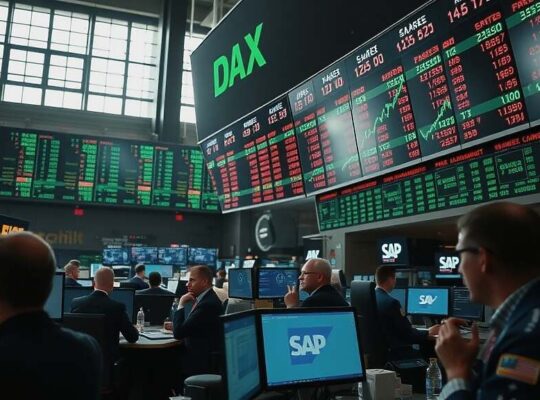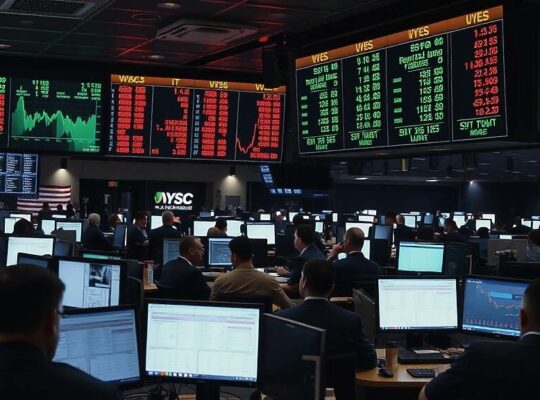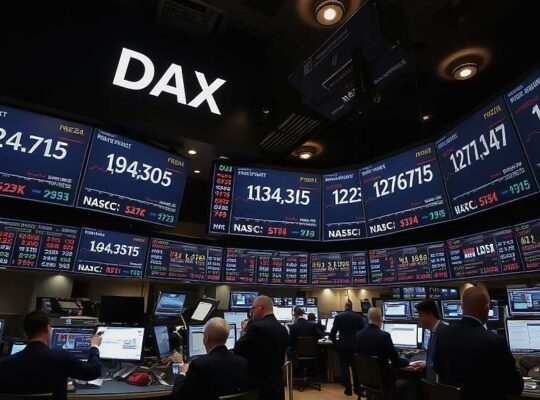German equities continued a downward trend on Tuesday, extending losses from a precarious start to the trading day. The DAX index closed around 24,120 points by midday, representing a 1.1% decrease compared to the previous day’s close. While Zalando, Vonovia and Volkswagen led the gains, Siemens Energy, Rheinmetall and Continental experienced the sharpest declines.
The release of the October ZEW Economic Sentiment Index offered scant reprieve, revealing a marginal uptick in optimism amongst financial analysts – a sentiment described by VP Bank’s Chief Economist Thomas Gitzel as “not exuberant”. While expectations for exporters showed a slight improvement, fueling hope for a potential rebound in the struggling export sector, the fragility of this optimism was immediately underscored. Gitzel cautioned that renewed trade tensions between China and the United States could swiftly darken the picture and undermine any nascent recovery.
Recent industrial data paints a grim picture, according to Gitzel, with August witnessing declines in new orders, industrial production and exports. “There is no indication of a recovery based on these figures” he stated. This persistent weakness raises serious questions about the government’s strategies for stimulating growth and addressing the ongoing vulnerabilities within the German industrial base.
The ZEW index does suggest the possibility of a moderate economic upswing, potentially bolstered by increased government investment in infrastructure, projected to take effect next year. However, this anticipated recovery is expected to be less robust than previous cyclical rebounds, raising concerns about its sustainability and the potential for prolonged economic headwinds. The reliance on infrastructure spending, while possibly offering temporary respite, also exposes the economy’s dependence on government interventions rather than organic growth fueled by private investment and consumer confidence.
The euro weakened slightly against the dollar, trading at $1.1554, reflecting broader concerns about the economic outlook in the Eurozone. Concurrently, a significant drop in crude oil prices – Brent crude falling to $61.98 a barrel – further dampened market sentiment, indicating potentially weakened global demand and adding another layer of economic fragility. The ongoing volatility across multiple market indicators underscores the challenges facing the German and wider European economies, demanding critical scrutiny of prevailing policy responses and a reevaluation of long-term growth strategies.












